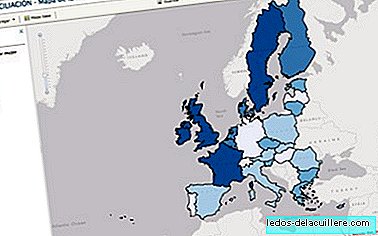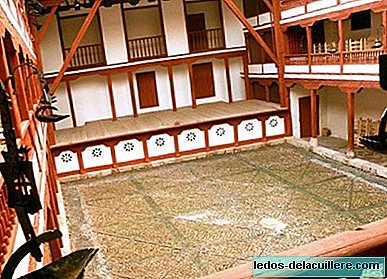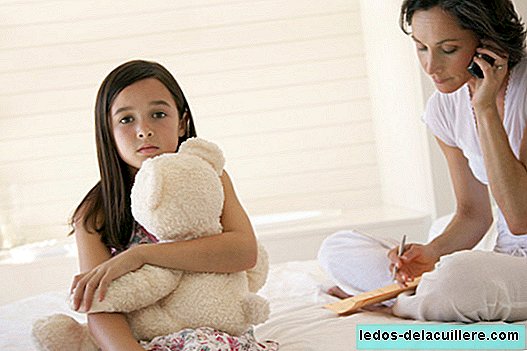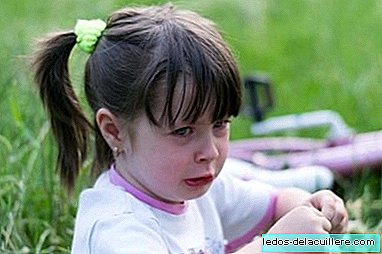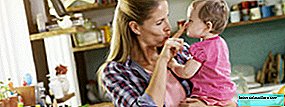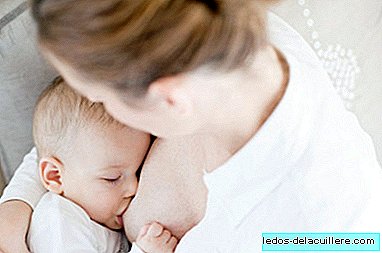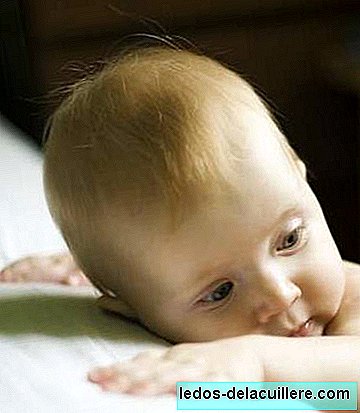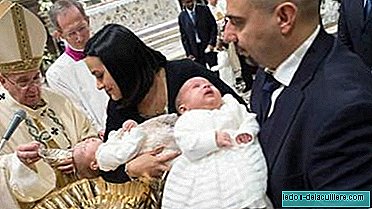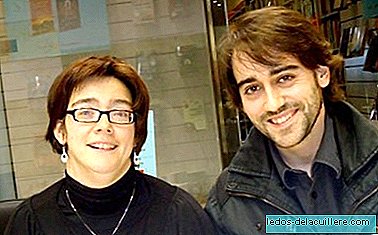
A few weeks ago we presented the book Adapted maternity, written by Estrella Gil, a woman with a 90% disability who was a mother two years ago.
His case seemed very unique and his story is a possible example for many disabled mothers and even for many mothers who are not. For this reason we decided to conduct an interview to learn firsthand about his history and his vision of motherhood.
Hello Estrella, first of all I would like you to explain a little the motivation to write this book.
For it is in a way the diary of my motherhood. The aim of this book is to contribute something to change the vision of the physically disabled and provide the testimony of a disabled mother, because during the first months of pregnancy I looked for information on maternity in disabled people and I really found very little.
With regard to the vision we have of us, it seems that little by little we are banishing the idea of the disabled dependent on their parents, unable to have an adult and independent relationship, a working life and a family life of their own. Yes, all that is more difficult for the disabled than for the rest of the people, but it is not impossible. Today, fortunately, it is normal for a disabled person to get studies. His social life has expanded and some of us even dare to have children. It is not a matter of demonstrating anything, it is a decision too important not to come from a deep desire to be a mother or father.
Did you always think you would be a mother?
Yes, whenever I imagined my future there was a child in it. I did not conceive my whole life without having children. It was a very strong desire. Then I met my partner and he also wanted to be a father. We knew it was not going to be easy but it was not impossible.
In the entry in which we present your book we read that a nurse "suggested" in a way that you should do something with your child, because he did not seem to believe that having it was an option. Have you had to overcome more obstacles like this when deciding to be a mother?
That comment from the nurse hurt a lot, came in a sensitive and beautiful moment and crushed everything. But I found less than I feared, really. If you ask me for now, yes, from time to time I find faces of censorship when they see me with my son. I try to give them the importance they have: none. But sometimes it is not easy. When I raised my desire to be a mother a couple of years before a gynecologist told me that it would be viable with a C-section but that having a child was not just giving birth ... or another that kindly informed me that I would have to have sex. I don't know why many people relate a disabled person to an immature and childish person.
A disability of 90% seems a lot. How does it affect you on a day to day basis when taking care of Miquel?
A 90% disability seems a lot and it is. But I have the advantage that I have since I was born. By this I mean that I have learned from years to do the basic things in a different way. Caring for my child is no exception. If to change the diaper I do it in his crib instead of the changing table, what does it matter if it is easier for me? As the child grows, things get easier but in the first months (of which the book speaks) he had to move the child from here to there in his bassinet with wheels and could only take him in his arms if he was sitting.

Entering a little more into your privacy, how have you managed to take care of your son so far? I understand that Jordi, the father, spends many hours away from home for work.
Jordi works many hours but when he gets home he takes care of bathing, changing and playing with him. In the morning I count on the help of my parents. As the child has grown they have left me more room to attend to me alone. But it is a great help. In the first months I went out with my father in the cart or with me in the backpack. In the afternoon, I sleep for a nap and after the tit I put it in my backpack to go for a walk.
In the same way that you have adapted to Miquel, your son, I suppose that Miquel has adapted to you too, am I right?
Well yes and it seems incredible. I soon realized that he never asked me for arms if he didn't see me sitting. When he started walking and falling, he usually stayed at the place waiting to be caught but if we were alone, he crawled to me so that I could catch him better. And in breastfeeding ... It's not that it costs me a lot to discover my breast, but I haven't done it for months, he already does it.
It certainly seems incredible how they get to know our virtues and defects. Talking to other people about your book, many asked me the same question: How do you think your relationship will be in the future, when Miquel grows up and is more aware of your disability?
The truth is that I worry when the other children make him notice that his mother is different when he goes to school. But I trust that he already knows it and will know how to assimilate it.
Returning to your book, what will the reader find when he opens the cover of "Adapted Maternity"?
First of all a sincere book, so sincere that sometimes it scares me that it is for sale ... You will find a very desired pregnancy lived in the first person with all the information that I have been able to gather and I consider useful for any pregnant woman. I hope you also find a new vision of disability that is present throughout history as a co-protagonist only, because the protagonist is the will to be a mother.
Well this is it, Estrella. Thank you for your words and your example.
You are welcome. Thank you.


